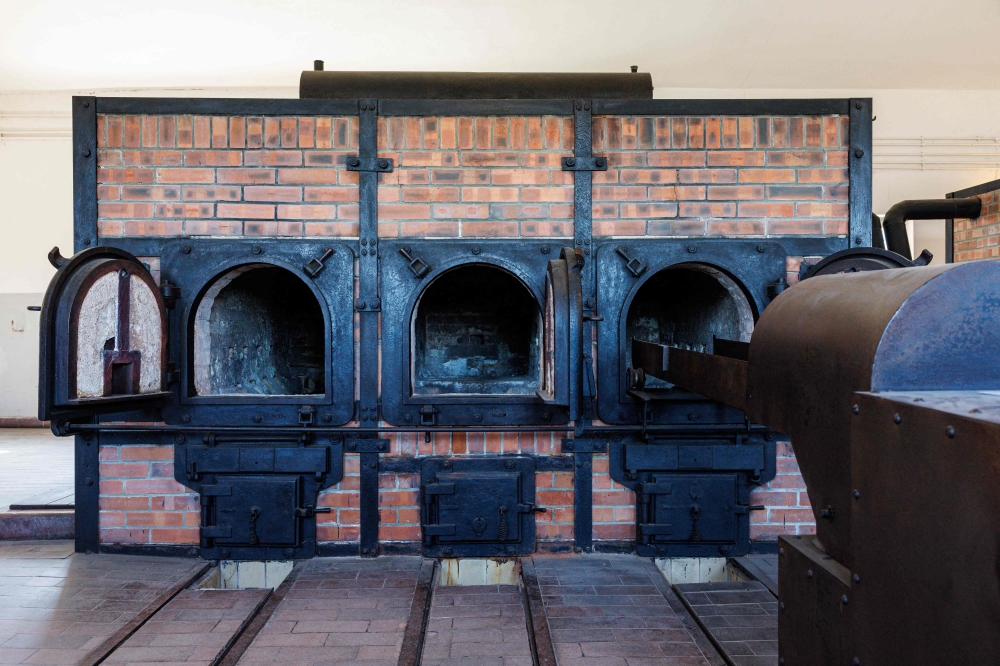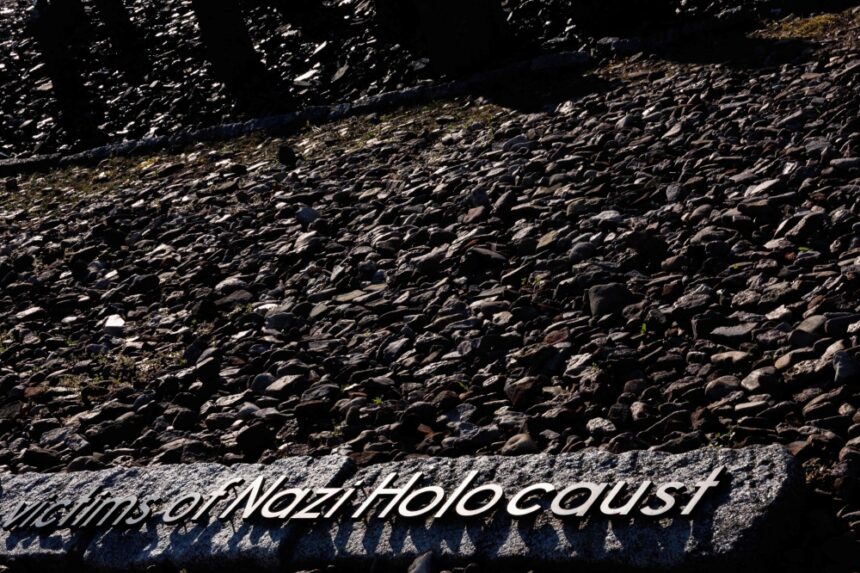BUCHENWALD (Germany), April 6 — With the far right on the rise again 80 years after the liberation of the Nazi concentration camp of Buchenwald, German drama student Kaethe Lange feels a special responsibility.
On Sunday, she will be part of a group of 30 young French and German people joining a performance at the sombre remembrance ceremony, to keep alive the memory of the Holocaust.
“If fascism is becoming a big thing again in Europe, you have to learn from history or somehow talk about it in order to learn from it,” said Lange, 20.
“It’s very important since I feel people talk about it less and less.”
Their performance is based on the life of Spanish-born communist resistance activist Jorge Semprun, who survived Buchenwald and went on to become a noted novelist, screenwriter and Spanish culture minister before he died in 2011.
Semprun was one of about 340,000 prisoners including Jews, Roma, homosexuals and Soviet prisoners of war who passed through Buchenwald or its annexe Mittelbau-Dora, both located near the German city of Weimar.
About 56,000 people were killed in Buchenwald — some executed, others starved or worked to death — and a further 20,000 died in Mittelbau-Dora, where inmates worked on the Nazis’ V1 and V2 rockets.
The main building of the Buchenwald Nazi concentration camp memorial site is pictured on April 3, 2025 prior to the commemoration ceremony. — AFP pic
German far-right resurgence
Sunday’s ceremony comes days before the 80th anniversary of the liberation of the two sites by US troops on April 11, 1945.
It also comes as far-right parties are making strong gains, among them the anti-immigration Alternative for Germany (AfD), which has openly questioned Germany’s culture of wartime remembrance.
Sunday’s performance is overseen by French theatre director Jean-Baptiste Sastre and French actress Hiam Abbass, who was born in Israel to a Palestinian family.
Putting it on at the camp itself, the actors aged 18 to 25 feel a special connection to the dark past and the tales of horror and heroism.
“Here in the camp we’ve certainly learned about the Holocaust,” said 20-year-old Jamel Boujamaoui, a factory worker from a Paris suburb. “It’s shown us a way of looking at things that school might not have.”
Berlin architect Rami El Younchi, 26, said that the “personal stories somehow make the whole thing even more real”.
In school and after, he said, “you learn something of the Holocaust, sure, but never as intensely as here”.
Tattooed prison number
Germany has long sought to atone for the crimes of the past, but many worry that times are changing.
In Thuringia, the eastern state where Buchenwald is located, the AfD is the largest party in the legislature.
“The certainties of the post-war decades… have become fragile,” said historian Jens-Christian Wagner, head of the Buchenwald and Mittelbau-Dora Memorials Foundation.
Looking further afield, he said, “liberal democracies are caught in the middle” of US President Donald Trump and Russian President Vladimir Putin. “And in Germany, the AfD is notoriously spreading historical revisionism.”
Ahead of February’s German elections, Trump’s ally Elon Musk told AfD supporters in eastern Germany via video-link that there was “too much of a focus on past guilt. We need to move beyond that.”
But the past is ever present for 100-year-old Holocaust survivor Albrecht Weinberg, who spent decades in the United States before returning to Germany, the country of his birth.
“I remember everything,” he told AFP. “Everything.”
He said he has a visual reminder every time he washes his face.
“I still have my prison number on my arm,” he said, referring to the tattoo forced on him in his first camp, Auschwitz, in what was Nazi-occupied Poland.

The former crematorium ovens are pictured on April 3, 2025. — AFP pic
Memories of Auschwitz
Weinberg said of the Nazi regime: “A few big shots in the Nuremberg trial court case, they got the book thrown at them, but most of them got away.”
He said the first generations of Germans that came after “never thought about, never talked about what their grandparents did”.
Weinberg has long spoken at schools to raise awareness of the Holocaust and he now worries deeply about the resurgent AfD.
In January, he handed back a German state honour he had received, after a bill demanding an immigration crackdown passed through parliament with AfD votes.
Memories are still fresh for Weinberg, who was at Auschwitz before being marched to Mittelbau-Dora in 1945.
Now frail and near the end of his life, he says young people must remember the past and engage in politics today.
“They shouldn’t be afraid to open up their mouth and say that something is not right — not like it was in that time,” he said.
He is among a dwindling band of survivors. More than 300 came to Buchenwald for the 60th anniversary in 2005.
This year, only nine are coming to Buchenwald, and Weinberg is the only survivor to make it to Mittelbau-Dora for the 80th anniversary ceremony. — AFP


